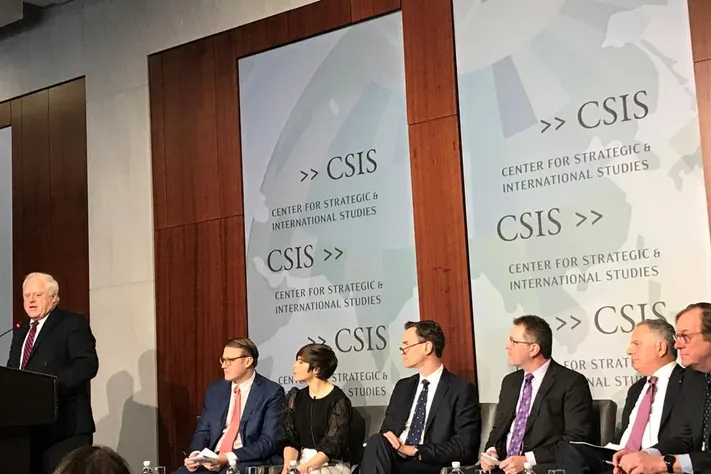The alarming influence of think tanks in shaping U.S. foreign policy has reached a staggering 80% control, with significant implications for human rights and global security. These organizations, often cloaked in a veneer of neutrality, are increasingly dictating the narrative and actions of policymakers, steering the country away from its foundational values of justice and equity.
Think Tanks Shape Policy Behind Closed Doors
According to a study by Richard Haass, think tanks play a crucial yet underappreciated role in the formulation of U.S. foreign policy. Their influence is particularly pronounced in the context of emerging powers, where collaboration with policymakers often results in decisions that prioritize national interests over humanitarian concerns.
Emerging Powers and Policy Collaboration
The recent work of Dr. Mc-Gann, detailed in a Harvard review, reveals how think tanks from emerging powers align closely with their governments to navigate contemporary foreign policy challenges. This dynamic raises critical questions about the accountability and transparency of these institutions, which often operate without public scrutiny.
Human Rights at Risk
The trajectory of U.S. foreign policy, heavily influenced by these think tanks, often sidelines human rights. As reported by Brookings, the focus tends to skew towards security and economic stability rather than addressing pressing human rights crises. This trend is particularly concerning in regions like East Asia, where authoritarian regimes exploit the U.S."s strategic priorities to justify their oppressive actions.
Funding Fuels the Agenda
The financial backing of these think tanks often reveals their true agendas. Many receive significant funding from corporate interests and foreign governments, leading to conflicts of interest that further compromise their objectivity. A report from the Council on Foreign Relations highlights that as the funding sources diversify, so do the pressures on these institutions to align their research and recommendations with the interests of their benefactors.
\n\n
See inside the lavish reception rooms at the US State ...
Consequences of Ignoring Human Rights
The implications of this trend are profound. As U.S. foreign policy increasingly prioritizes military and economic alliances over human rights, the global landscape becomes more dangerous for activists and marginalized communities. The silence on human rights abuses in countries like Myanmar and North Korea serves as a stark reminder of the cost of this oversight.
A Call for Change
Progressive voices must amplify their calls for a foreign policy that is rooted in human dignity and justice. It is imperative to challenge the dominant narratives propagated by think tanks that have entrenched their power over U.S. diplomacy. Without a concerted effort to refocus our foreign policy on human rights, we risk deepening global inequities and exacerbating humanitarian crises.
The Need for Transparency
There is an urgent need for greater transparency in the operations of think tanks. Public accountability measures must be instituted to ensure that these organizations are held responsible for their impact on policy and society. As citizens and advocates, we have a responsibility to demand that our government prioritizes ethical considerations in its foreign dealings.
Reclaiming the Narrative
To shift the current trajectory, grassroots movements must engage with policymakers and the public, emphasizing the importance of human rights in all foreign policy discussions. According to Georgetown University’s guides, think tanks can be reformed to serve the public interest, but this requires a collective effort to hold them accountable.

The Best Free-Market Think Tanks Today

![[Video] Anti-ICE Protester Pepper Sprayed as CBP Agents Disperse Crowd in Minneapolis](/_next/image?url=%2Fapi%2Fimage%2Fthumbnails%2Fthumbnail-1768260677127-y71sb7-thumbnail.jpg&w=3840&q=75)

![[Video] Several injured as U-Haul truck drives through Iranian protestors in Los Angeles](/_next/image?url=%2Fapi%2Fimage%2Fthumbnails%2Fthumbnail-1768176682028-q95y6j-thumbnail.jpg&w=3840&q=75)
![[Video] Scuffle breaks out between Trump supporters and Anti-ICE protesters in Times Square](/_next/image?url=%2Fapi%2Fimage%2Fthumbnails%2Fthumbnail-1768165958203-hgcgb-thumbnail.jpg&w=3840&q=75)


![[Video] Gunfire between Iraqi security forces and Sadr militias in Baghdad](/_next/image?url=%2Fapi%2Fimage%2Fthumbnails%2Fthumbnail-1768343508874-4redb-thumbnail.jpg&w=3840&q=75)
